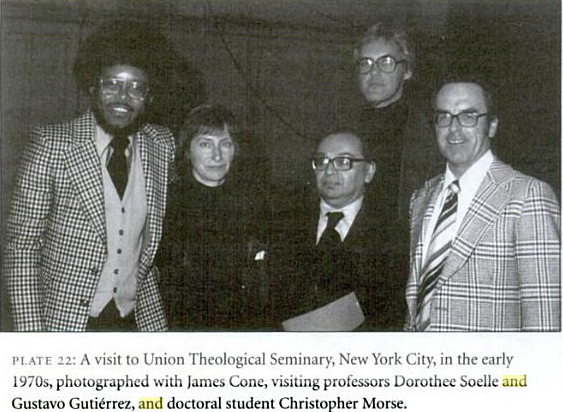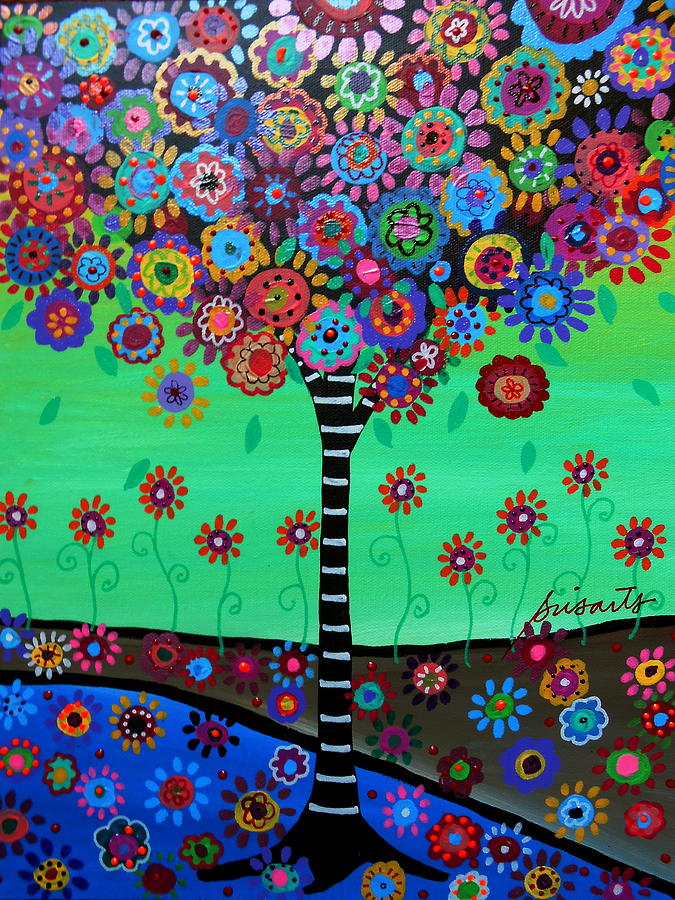On Sunday, an ecumenical group called We Are Church Confessing
gathered at Cowles Commons in Des Moines to confess together the ways
that we as the church, particularly the predominantly white churches,
have not responded adequately to the injustices being perpetrated in the
united states. You can find the video of our gathering here. This gathering occurs the first Sunday of the month at 1pm.
The Lutherans hosted this event and I wrote the liturgy with collaboration from Rev. Minna Bothwell and periodic contributor River Needham.
Below is the liturgy as it was written, designed for about a 20 minute
service. Each person received a large paper that was a bulletin on one
side and had space to write a confession and a prayer on the other, so
that is referenced during the liturgy. Communal responses are in bold.
If you are interested in using or adapting this liturgy, please comment on the blog or contact me directly.
Gathering
If you haven’t done so already, please write out a confession
specific to you around power or privilege and a prayer specific to you for the
world as it could be. Liturgy is
the work of the people and the work in this liturgy is complicated, heavy, and
important. As we work through this
liturgy, you may find yourself to be among those who are oppressed by what we
are confessing. When that is the
case, use your discretion to participate or refrain as appropriate.
For those who hold identities of privilege and power, especially
as relates to different points of confession, even if you don’t think you have
specifically done what we are confessing, I invite you to recall not only
active ways you may have oppressed others, but also the ways that you may not
be aware of, by which you have contributed to others’ oppression and in that
sense, please join in on the responses to confess our sins as a whole church.
Confession
People of faith, we gather on land originally inhabited by the Báxoj'e, or Ioway Nation, and the Sauk and Meskwaki peoples. People who were systematically
targeted by white settler colonialism for extermination. In the 1800s, through treaties,
some of which were fraudulent and all of which were made under duress, the
united states government took all of the Ioway and Sauk and Meskwaki lands and
forced the tribes onto reservations.
Colonizers selected Two Spirit
people, who were oftentimes held in places of high esteem within their tribes,
as the first targets for extermination.
White settler colonialism still celebrates “Columbus Day” and calls
Turtle Island the “new world.”
The genocide perpetrated against Native Peoples and their forced removal
to reservations, justified by the Church’s Doctrine of Discovery, was a model
for Hitler in the Holocaust. We
continue to destroy this land out of greed for oil, money, and power. We join in Indigenous struggles for
sovereignty only after we recognize how eminent domain abuse harms us.
We pretend to celebrate Native
peoples through hypersexualized costumes of Pocahontas who was kidnapped,
raped, and died in another land at the age of 21. We do not teach the history of the lands we live and worship
on. We do not acknowledge, let
alone honor, respect, or learn from, the original inhabitants of this land we
now occupy, pollute, and exploit.
These are sins of the
Church.
So, dear people,
do you confess?
We confess that we have supported settler colonialism and native
erasure by what we have done and by what we have failed to do. We are sorry for
the harm this has caused and we repent.
People of faith, many of us trace our faith traditions back to the Protestant
Reformation and, especially for Lutherans, Martin Luther. Antisemitism and anti-Judaism are a
part of our histories we would prefer to deny or excuse. Martin Luther was antisemitic. Churches have participated in and actively
supported pogroms and the Holocaust, and the Inquisition and Crusades before
that. In Christianity’s push for
power, we allied ourselves with Empires and remain tethered to our places of
power.
When we read Jesus into the Hebrew Bible, our
supersessionism harms and undermines the faith of Jewish people. When we set Jesus against faithful
Jewish people, maligning Pharisees and Jewish leaders, we hide and yet
reinforce our anti-Judaism. When
we refuse to honor the holy days of other faiths, allowing Christian holidays
to be the standard for elected officials, school systems, and government
schedules, our Christian supremacy harms and marginalizes people of every other
faith and no faith—all in exchange for power and privilege.
The attack on the Tree of Life congregation in
Pittsburgh and the vandalism that has taken place at synagogues before and since
are our responsibility to atone for as the Church.
These are sins of the
Church.
So, dear people,
do you confess?
We confess that we have supported antisemitism, anti-Judaism and
Christian supremacy by what we have done and by what we have failed to do. We
are sorry for the harm this has caused and we repent.
People of faith, the same doors
to church buildings that welcomed and were built by our immigrant ancestors now
close and lock themselves off from immigrants whose skin is darker, whose
language is different, who haven’t met the recent, unrealistic standards for
official u.s. documentation.
We eat and drink from what
immigrants grow and harvest, yet we will not share a Table together. We take mission trips to places we say
we love and then demonize people from those same countries when they come here
seeking a better life, fleeing violence, often a result of military
dictatorships propped up by our own government.
We lift up Jesus and the Holy
Family as refugees and immigrants in Egypt, pretending our churches have never
turned away immigrants or looked down on those from different cultures than our
own. We refuse to acknowledge our
connections to people of other cultures and faiths, and by our silence we allow
the demonization and encourage harmful stereotypes of Muslims from this country
and around the world as well as immigrants from throughout the colonized parts
of this world.
These are sins of the
Church.
So, dear people,
do you confess?
We confess that we have supported xenophobia and Islamophobia by
what we have done and by what we have failed to do. We are sorry for the harm
this has caused and we repent.
People of faith, the Church legitimized slavery, institutionalizing racism in
this country. The church abused
sacred scriptures to keep people of color, particularly people of African
descent, as well as Native peoples oppressed and enslaved. The church has worshiped whiteness and
power instead of the God of the Oppressed. We have whispered #BlackLivesMatter, if we’ve said anything
at all.
We have not stopped racist
policing. We remain oblivious to
the ways whiteness makes life easier.
We do not put forth the effort to pronounce Laquan or Juliana that we do
Dvořák. We assume people
of color are not from here. We
allow classism and racism to divide all who need economic justice from each
other. We reproduce images of God
and Jesus as white and lift up whiteness as purity and cleanliness while
calling darkness dirty and scary.
We perpetuate racism.
These are sins of the
Church.
So, dear people,
do you confess?
We confess that we have supported racism and white supremacy by
what we have done and by what we have failed to do. We are sorry for the harm
this has caused and we repent.
People of faith, Christianity
has created and enforced transphobia and cisheteronormativity as standard and
“faithful.” The church has and
continues to persecute queer people throughout the world, both actively with
violence and through more subtle means.
Churches support conversion therapy, bathroom bills, and book burnings.
Our worship spaces and liturgies
are not accessible. Churches
refuse to hire or call queer and trans people, especially women, femmes, and
nonbinary folks, into leadership positions; support discriminatory
organizations like Focus on the Family and Thrivent Financial; segregate
bathrooms and groups according to the false gender binary; and make unclear
statements of “all are welcome.” These contribute to the erasure, oppression, and hatred queer
people experience in the church.
These are sins of the
Church.
So, dear people,
do you confess?
We confess that we have supported transphobia and transmisogyny
and cisgenderism by what we have done and by what we have failed to do. We are
sorry for the harm this has caused and we repent.
As you gathered you took time to write your
own individual confessions and prayers on the sheets of paper that you have. At
this time I invite you to state your confession aloud and after each confession
we will join together to respond with “we confess”.
Forgiveness
Dear people of God, we are all caught up in
systems of oppression and violence. Our sins are both corporate and individual.
Intentional and unintentional. Yet God comes into the midst of it all with
this good news: through the power of Christ, death, sin, violence, and
oppression no longer have power over us. By the power of the Spirit, I now
declare to you, the entire forgiveness of all your sins.
Amen.
Song and Offering “There is More
Love Somewhere”
[Our offering went to Iowa's American Friends Service Committee, specifically to support DACA recipients as well as family reunification for families separated at the border]
Renunciations
Drawing on the Lutheran baptismal tradition, we will now enter
into a time of renunciation—naming that which opposes the God whom 1 John 4
calls Love and renouncing it, turning away from it and towards Love. When asked, please respond: I renounce
them.
Evil manifests itself in many ways: implicit bias, harmful stereotypes,
ignorant questions, comments, and expectations, fear and perceived scarcity,
and active prejudice and violence against others.
Do you renounce these manifestations of evil and all the forces
that defy the God who is Love?
I
renounce them.
Evil is insidious and works within systems and institutions to
oppress and marginalize. Evil
manifests itself in the ongoing legacy of colonialism, slavery, and queerphobia
perpetrated by this country and the church. These evils, along with xenophobia and Islamophobia have
been encouraged through the current administration and strengthened in
legislation, policies, and plans put forward in governments and churches
throughout this country and world.
Do you renounce the powers of this world that rebel against the
God who is Love?
I
renounce them.
We understand sin as separation—from the Divine, from each
other, and from Creation. Sin
keeps us focused inward on ourselves, ignoring or fearing any who we deem as “Other,”
putting our wants before others’ needs, and isolating ourselves.
Do you renounce the ways of sin that draw you from the God who
is Love?
I
renounce them.
Prayers for Help
Creator God, your sacred nature is in all things. Help us to honor, respect, and support the
Native peoples of this land and protect the earth and all its inhabitants.
Help us, O God.
Your mercy is great.
Holy One, you are worthy of praise. Help us to affirm, celebrate, and
support people of all faiths, especially Jewish people and Muslims, challenging
antisemitism and Islamophobia whenever we encounter it.
Help us, O God.
Your mercy is great.
Sojourning God, you come to us as the stranger and
foreigner. Help us to create
sanctuary for immigrants, provide for those in need, and challenge the fears of
ourselves and others.
Help us, O God.
Your mercy is great.
God of the Oppressed, you join with the oppressed in life
and death. Help us to recognize
your image in Black and Brown bodies, confront racism, and destroy white
supremacy.
Help us, O God.
Your mercy is great.
Transgressing God, you break binaries between human and
Divine, sinner and saint. Help us
to celebrate queer and gender expansive understandings of scripture, protect
the rights and existence of trans and gender expansive people, and challenge
gender segregation in every space.
Help us, O God.
Your mercy is great.
Liberating God, we need you. We need your help to live into your liberating power, into
the vision you cast of a world free from oppression. We now lift up our prayers, those we have written down and
those on our hearts. At this time I invite you to state your
prayers aloud, ending each prayer with “Help us, O God,” to which we will join
together to respond with “Your mercy is great.”
[Leader will end the prayer time with the following]
God of hope, may all you know is needed be done, we pray in
your holy and precious name. Amen.
The news is that God’s wind is blowing.
It may be a breeze that
cools and
comforts.
It may be a gust that
summons you to
notice.
It may be a storm that blows you
where you have
never been before.
Whatever the wind is in your life,
pay attention to it…
…Go in peace.
Live into God’s liberation.
Thanks be to God.








